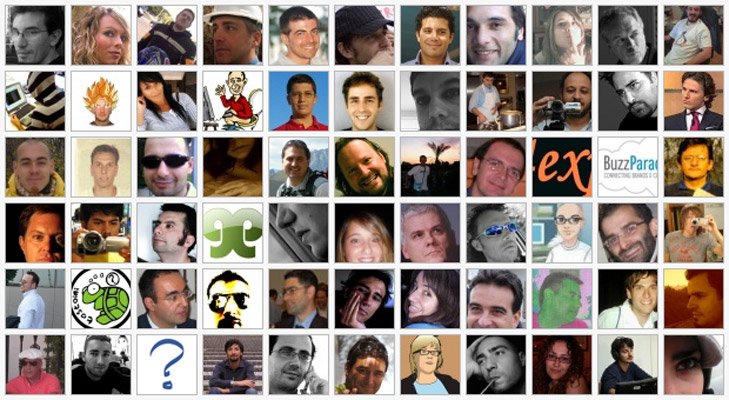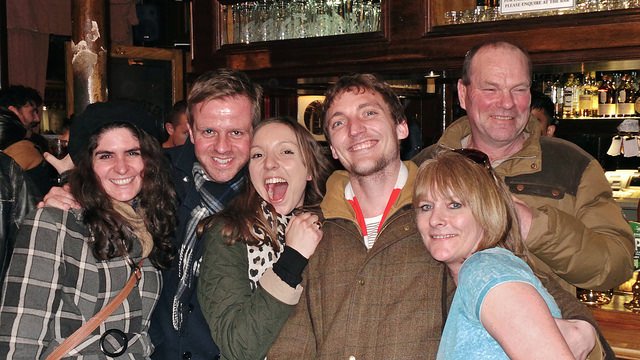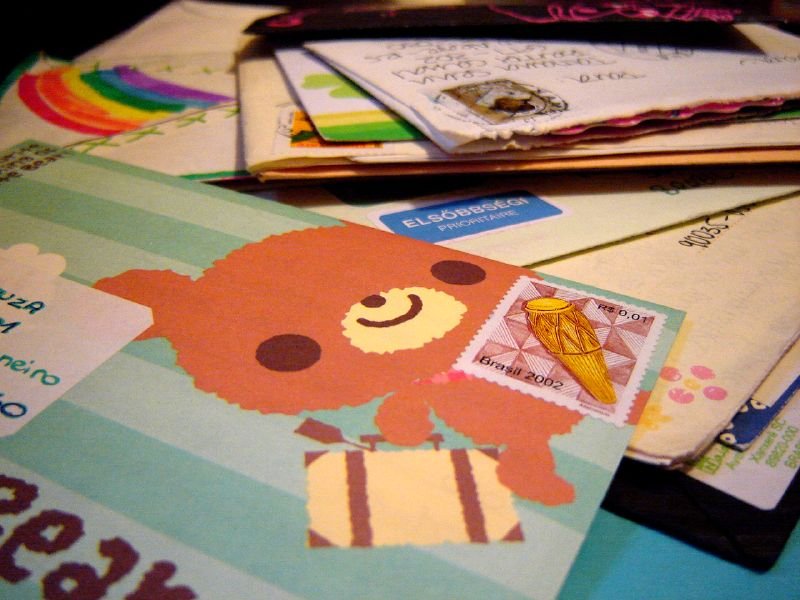 I move around a lot — not kinetically, but like a hermit crab from home to home. And as a consequence, my Facebook account has become cluttered with groups of friends from all the various cities where I have lived. So recently, in a bitter night of un-Friending, I purged gangs of them from my Friends list. It’s not that I had reason to suddenly dislike them — most were wonderful people — it’s that I became acutely frustrated with Facebook and how it has affected me.
I move around a lot — not kinetically, but like a hermit crab from home to home. And as a consequence, my Facebook account has become cluttered with groups of friends from all the various cities where I have lived. So recently, in a bitter night of un-Friending, I purged gangs of them from my Friends list. It’s not that I had reason to suddenly dislike them — most were wonderful people — it’s that I became acutely frustrated with Facebook and how it has affected me.
Since I was born before the advent of the Internet (yes, children: gather ‘round for story time) I remember an age before smart phones and tablets had become de rigueur – it was a time when I would meet people, form quick friendships, and then never see them again because I had moved on. In those years, when the Internet was little more than an agonizingly slow experience thrumming with future promise, I rarely took photos of friends or even at events, so I sometimes forgot the names and faces of people I left behind. Now, however, social media services make it a cinch to indelibly record names, faces and life events in the digital slipstream of the Internet, and I find myself pining for the world of privacy lost in the wake of the Facebook’s boom.
People seem to pay little mind to Friending each other on Facebook, and this casual expectation of social media connections irritates me because it dilutes the value of genuine friendship. That irritation finally manifested in my aforementioned late-night purge of Friends on Facebook. I told myself that I needed to cut away all the people that I had met once and had never seen again or that had never made an attempt to communicate since first friending on Facebook. What was the point of remaining acquaintances with them?

As I sat staring at the list of people I was trimming down to a vital core, I reflected on the five years I had spent exploring the social media scene (yes, I arrived late to Facebook in 2010). I acknowledged that posting on Facebook led to, or sometimes exacerbated, various forms of compulsive behavior, and I had to admit that over time, social media changed me in profound ways.
Sometimes I planned stunts and outrageous posts as a way to garner Facebook Likes, and I ended up seeking validation of my life from others. That’s hardly anything new in terms of the Internet, and the Facebook Like is arguably one of the most addictive forms of positive response; but social media provides a round-the-clock audience that didn’t exist prior to the turn of the century. More than once I was startled to see people liking a 2 am status update mere seconds after I posted it.
I also tried to amend witty observations to my friends’ posts and thereby reinsert myself into their life from afar, but then I experienced the pang and frustration of being ignored. I found the absence of response more disquieting than anything. What did it mean? Had I transgressed a friend’s boundaries or was my comment unwelcome because their post was meant only for a select audience? Most likely they just didn’t care enough to respond to what I’d written.
And when I arranged my first gallery exhibit of portraiture in a community art gallery, my acquaintances encouraged me to inflate my number of friends to become more marketable (“That’s the way social media works, honey.”). My numbers were dismally low compared to most of the twenty and thirtysomethings I was friends with, and I felt inadequate. Yet at the same time, I wanted to hold on to my value of only maintaining genuine friends through social media.
But the greatest change I observed in myself was the way I gradually became a voyeur in my friends’ lives. Out of all my acquaintances, only a handful had the sense to filter what they posted in social media out of concern for privacy; the rest either did not know how to configure privacy options in Facebook or didn’t pause to consider the potential consequences of their posts. So thanks to Facebook, I was suddenly able to gorge myself on several years of a person’s photos and activities all at once.

I could observe how a person’s hairstyle and fashion had changed radically from high school to graduate school or how they had gained considerable weight after marriage, I became privy to the bickering and text wars that raged through their comments, and I could witness vicariously their family reunions and observe the countless awkward social interactions preserved forever in their photo albums. So you see, instead of allowing my friendships to mature naturally over time, Facebook force-fed me scandal, confessions, rants and diatribes with little or no context; according to a 2010 survey from the American Association of Matrimony Lawyers (AAML), two-thirds of American lawyers cite Facebook as a primary source of evidence used in divorce cases.
I absolutely do not need to know what every person I’ve ever met is currently doing in their life, nor do I want to know. But social media drives my compulsive tendencies by giving me instant (and often inappropriate) access to the intimate lives of all the people I have met. In short, it has trained me to be a spy among my peers.
If you have never known a life without social media, let me offer you the following as an antidote:
Even though I frequently relocate to new residences — sometimes as much as thrice yearly — I am often nostalgic about my past connections, and it’s not unusual for me to gaze out a window and silently ponder whether my old friend, Danny*, ever bought that horse farm he always wanted. Danny is exemplary of the friendships I formed prior to the rise of social media outlets on the Internet: we met in 1999 in Ft. Lauderdale, Fl., and at the time, AOL (America Online) reigned supreme but was mostly used for chat and occasional hookups. A few years later in 2003, Danny jumped on board the MySpace wagon and made his first cyberspace friend. I teased him once when his truck broke down that he should call his new “friend” and ask if the guy would come pick him up.
Danny was a racehorse trainer turned truck driver who aided me in monumental ways when I first arrived in Ft Lauderdale. Back then I had only a bicycle and the city bus for transportation, so he drove me around town as relief assistance for two full years until I finally got a car. During that time, if I ever ate at a sit-down restaurant, it was because Danny had treated me. And after I got my car, he taught me how to service and repair my fox-body v-6, ragtop Mustang — it was the only car I ever owned that was even remotely sporty, and it broke down about as often as I did.
Danny was always there for me: he had a small fleet of moving trucks, and as I continued my trend of relocations, he helped me transition to three new residences (on the third move he joked “The next time I move you, you better be in a coffin.”) And once, I even had jealousy sex with him when his ex — a man skinnier and a few years younger than I was — visited from Alaska. But I ended our friendship abruptly because Danny started having sexual relations with a minor, and I couldn’t bear to hear his confessions nor could I handle the threat of danger he was courting. He ignored my advice to stop, and in frustration I cut him off.
To this day, I have never searched for him on Facebook though I’m confident I could locate him in less than five minutes — he’s exactly the sort of old buddy Facebook thinks their friend-finding algorithms will promote in the sidebar of my feed and inspire me to reconnect with, but my epic laundry list of residences has foiled even their stalker/creep-out magic powers. Sadly, I don’t think I own a single photo of Danny, but I will never forget his sun-beaten face grinning into a styrofoam cup of Dunkin Donuts coffee nor the gritty calluses heaped on his palms and knuckles that gave his hands the feel of stretched leather covered in sandpaper. Sometimes I miss him sorely, and that experience is precisely what is lacking in the social media world: loss of connection.
I have no qualms about completely disconnecting from old friends. In fact, I place value in losing touch with acquaintances and forgetting about them; I consider it part of the human experience. I savor the sour disappointment that arises after others have forgotten me and moved on as much as I relish the jolt of unplanned or unexpected reconnections with friends long past. Closure — no matter if it is painful or celebratory — is vital to me and clears my path ahead for new connections.

It’s a reminder of my age that I’ve been able to observe how, over a short span of years, technology has forever altered the way friends stay in touch with each other. An article in the April 2015 issue of Vanity Fair peremptorily proclaimed “the phone call is dead” since nowadays the primary use of a phone is for texting, but the author of the article seemed to disregard the existence of people over the age of forty. In similar fashion to this trend toward texting, email was once heralded as the end of snail mail, and certainly, the U.S. Post Office is now desperate to transition to parcel shipments following the decline of letter mail (advertisers are about the only people still using First Class mail). There are dwindling numbers of people left in America that write actual letters and even fewer still that send postcards while on vacation. But you know, I used to collect letters and postcards, and I also used to resist the trend to join Facebook.
That feeling of resistance endured the entire five years I remained on Facebook, and it fueled the recent purge of friends I committed. But I learned the day after that removing a handful of people from my Friends list wasn’t enough: I decided to abandon Facebook for good and delete my account, and that turned out to be the radical change I’d wanted all along.
What follows is the last post I made on Facebook before deleting my account. I suppose only a handful of Friends actually read the post since I deleted my account shortly after writing it, and technically, my account is only suspended because I can reactivate it at any time later by logging in. That doesn’t sound like account deletion to me, but it’s no surprise they make it easy to come back. Anyway, I was selfish about the whole process: the message is composed more for me than to comfort anybody I care about.
“I ask that my friends remember me in their minds and appreciate the joy and agony we shared however long ago. My permanent address is still my parents’ house, and if you never got my new phone number or new mailing address, alas. I hope to see you all sometime soon and be shocked by how much life and growing older has changed you or by how much you have resisted change. According to FaceBook, there are 112 of you, and that is down from 154 following the earlier purge I made on Wed when I was angry (at nobody in particular).
Filakia,
Spriggan”

Spriggan Radfae – Radical Faerie at large.
* Name changed to protect privacy.
Follow us!Share this post with your friends.
